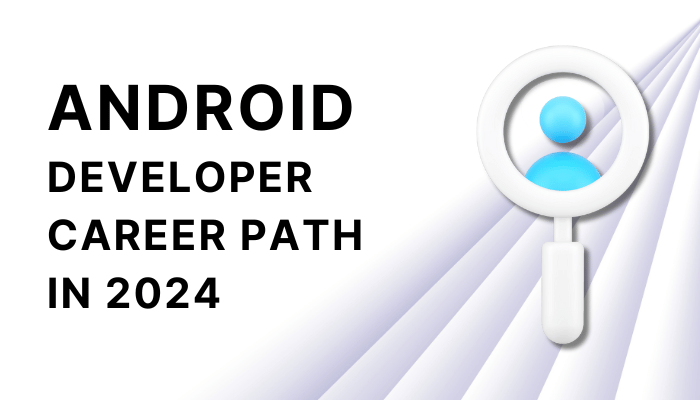Android Developer: Career journey as an any developer can be an exciting and rewarding choice, especially for those who are passionate about creating innovative mobile applications. In this guide, we’ll navigate through the essential steps and resources to help beginners kickstart their career in Android development.
Understanding the Basics:
Before delving into Android development, it’s crucial to grasp the basics of programming languages. Java and Kotlin are the primary languages for Android development. Resources like Udemy, Codecademy, Udacity, and freeCodeCamp offer interactive courses to build a strong foundation.
Setting Up Your Development Environment:
To start coding for Android, you need to set up Android Studio, the official IDE for Android development. Android Studio provides a user-friendly interface and powerful tools to streamline the development process. Follow the installation guide on the official Android Developer website to get started.
Learning the Fundamentals of Android Development:
Now that your development environment is ready, dive into the fundamentals of Android development. Understand key concepts like activities, fragments, layouts, and views. Google’s official Android Developer documentation is an invaluable resource, providing in-depth guides and tutorials.
Building Your First App:
The best way to learn is by doing. Create a simple “Hello World” app to apply your newfound knowledge. Gradually progress to more complex projects, integrating features like user interfaces, data storage, and API integration. GitHub is an excellent platform to explore open-source Android projects for inspiration.
Mastering UI/UX Design:
A successful Android app not only functions seamlessly but also provides an excellent user experience. Learn about Material Design principles to create visually appealing and user-friendly interfaces. Tools like Figma and Adobe XD can enhance your UI/UX design skills.
Exploring Database Management:
Understand the importance of data storage in Android apps. Learn SQLite for local databases and Firebase for cloud-based solutions. This knowledge is essential for developing apps that handle user data efficiently.
Embracing Version Control:
Version control is crucial in collaborative development. Git and platforms like GitHub allow developers to track changes, collaborate seamlessly, and contribute to open-source projects. Learn the basics of Git to enhance your professional workflow.
Testing Your Apps:
Quality assurance is integral to app development. Familiarize yourself with testing frameworks like JUnit and Espresso. Conduct unit tests, UI tests, and integration tests to ensure your apps perform reliably.
Staying Updated with the Latest Trends:
The tech industry evolves rapidly. Follow Android blogs, join developer forums, and participate in online communities to stay updated with the latest trends, tools, and best practices. Attend conferences and webinars to connect with experienced professionals.
Building a Portfolio:
Assemble a portfolio showcasing your projects, contributions, and skills. A strong portfolio is your ticket to attracting potential employers or clients. Platforms like LinkedIn and personal websites can serve as effective showcases of your work.
Conclusion:
Becoming an Android developer is a journey filled with continuous learning and growth. By mastering the fundamentals, staying curious, and actively participating in the Android developer community, you can pave the way for a successful career in this dynamic field. Embrace challenges, persist in your coding endeavors, and watch your Android development skills flourish. The world of app development is at your fingertips – start coding!

